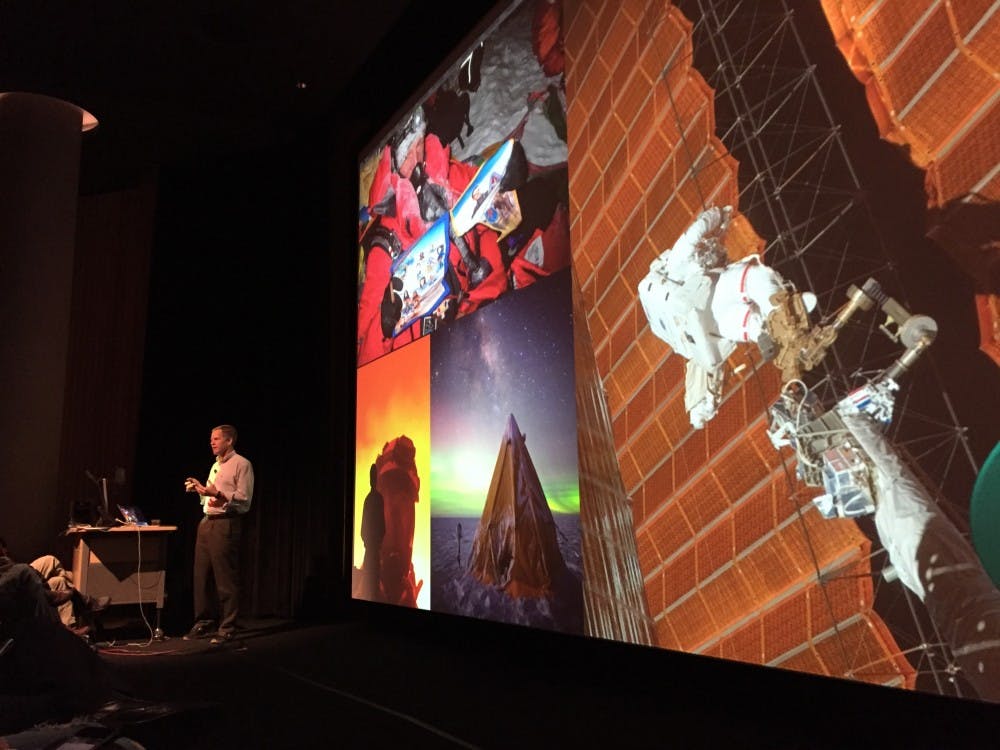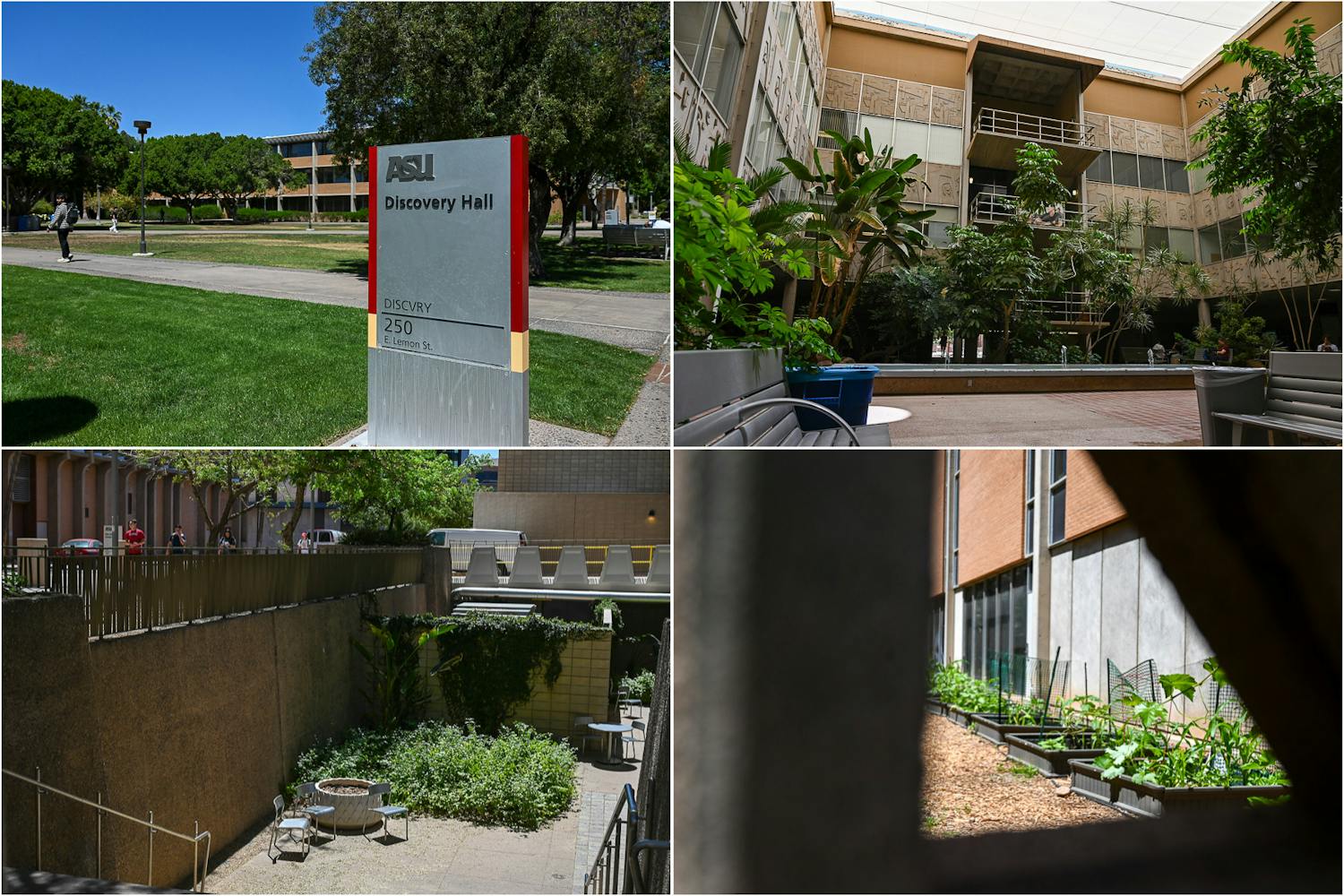Former astronaut and ASU professor Scott Parazynski said he sees outer space, the highest mountain peaks and smoking volcanoes much the same: harsh environments that benefit mankind.
His lecture took place at the Marston Exploration Theater on ASU’s Tempe campus, which was packed full of students and public attendees. Parazynski discussed human exploration and the ability to learn from Earth’s harshest environments.
“The reason I’m drawn to these places is because they are an incredible catalyst for innovation,” Parazynski said during his lecture, hosted by the ASU School of Earth and Space Exploration Thursday night. “I’m very passionate about pushing the boundaries of human endeavor because it’s important for science, but it’s also important for society.”
In addition to medical research and training in emergency medicine and trauma, Parazynski said he has flown in five space shuttle missions, ascended the summit of Mount Everest and joined an expedition to the heart of Nicaragua’s Masaya Volcano.
He began his lecture with a detailed report of his achievements and his transition from medical school to the NASA space program as an astronaut. While working at NASA, Parazynski said he realized how important is it for humans to explore and how rewarding it is to find ways to help people and advance technology on a large scale.
Parazynski said that his curiosity lead him to some of his most important innovations in technology.
“You always have to ask questions,” Parazynski said. “Are there ways to make things better?”
In preparation for his summit of Mount Everest, Parazynski invented a hydration body pack system called "Fluidity," which has a heating element so that water would not freeze in the sub-zero temperature on the mountain.
Parazynski said the most recent accomplishment on his resume was a 2016 trip to Nicaragua where he studied volcanic activity atop the Masaya Volcano. His team was able to install sensor networks around the volcano, which enabled the creation of tools to predict the volcanic activity.
“All the things that have meant the most to me in life have taken a lot of time and passion and action,” Parazynski said. “Nothing of any great significance in life is given, it’s something that you have to work very hard for."
In May 2016, Parazynski was inducted into the U.S. Astronaut Hall of Fame at the Kennedy Space Center, exceeding his childhood dream of working for NASA.
Jefferson Fleming, a student majoring in aviation management technology at SESE said that the most important lessons provided in the lecture were to explore, become curious and keep asking questions.
“The takeaway was that through the hardest of work and through the dangerous experiences, you can still find the curious out there,” Fleming said.
Audience member Rebecka Cabrera of Phoenix said she was inspired by Parazynski's lecture.
"I want to find something that I feel passionate about the way he felt passionate about space and his inventions," Cabrera said.
Reach the reporter at johannalovett26@gmail.com or follow @johannavlovett on Twitter.
Like The State Press on Facebook and follow @statepress on Twitter.




